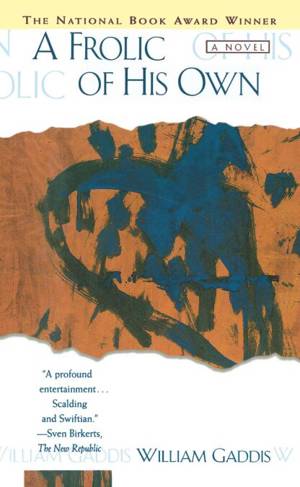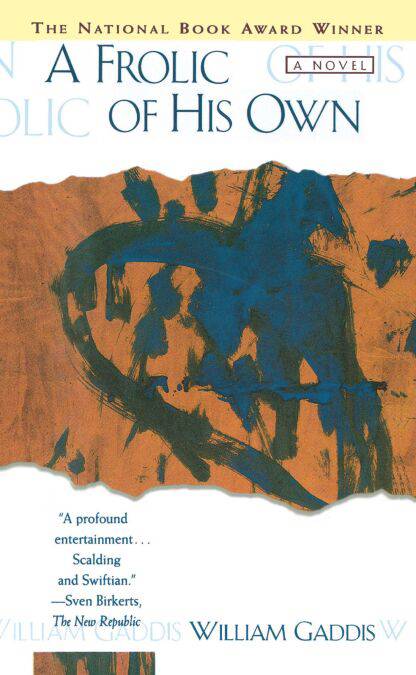
- Afhalen na 1 uur in een winkel met voorraad
- Gratis thuislevering in België vanaf € 30
- Ruim aanbod met 7 miljoen producten
- Afhalen na 1 uur in een winkel met voorraad
- Gratis thuislevering in België vanaf € 30
- Ruim aanbod met 7 miljoen producten
Zoeken
Omschrijving
An aspiring author’s lawsuit raises questions about family, inheritance, and the vagaries of the American legal system in this National Book Award–winning courtroom satire.
Oscar Crease, part-time history professor and aspiring playwright, penned Once at Antietam, his magnum opus fictionalizing his grandfather’s experiences during the Civil War. Despite his high hopes and sending copies of the play to everyone he could think of, Oscar failed to get it staged. But then a movie with the same title and other striking similarities comes out. Convinced they plagiarized his work, Oscar decides to sue the studio.
His hunger for recognition and justice is all-consuming, even as his financially dependent half-sister and her husband’s lives get caught in the crossfire. As Oscar’s lawsuit progresses at a painfully slow, bureaucratic pace, legal documents and transcripts are interspersed throughout the narrative, highlighting the exploitation present in both the legal system and Hollywood machine—as well as Oscar’s determination to win despite the rising cost.
Oscar Crease, part-time history professor and aspiring playwright, penned Once at Antietam, his magnum opus fictionalizing his grandfather’s experiences during the Civil War. Despite his high hopes and sending copies of the play to everyone he could think of, Oscar failed to get it staged. But then a movie with the same title and other striking similarities comes out. Convinced they plagiarized his work, Oscar decides to sue the studio.
His hunger for recognition and justice is all-consuming, even as his financially dependent half-sister and her husband’s lives get caught in the crossfire. As Oscar’s lawsuit progresses at a painfully slow, bureaucratic pace, legal documents and transcripts are interspersed throughout the narrative, highlighting the exploitation present in both the legal system and Hollywood machine—as well as Oscar’s determination to win despite the rising cost.
Specificaties
Betrokkenen
- Auteur(s):
- Uitgeverij:
Inhoud
- Aantal bladzijden:
- 512
- Taal:
- Engels
Eigenschappen
- Productcode (EAN):
- 9781439125472
- Verschijningsdatum:
- 17/06/2013
- Uitvoering:
- E-book
- Beveiligd met:
- Adobe DRM
- Formaat:
- ePub

Alleen bij Standaard Boekhandel
+ 17 punten op je klantenkaart van Standaard Boekhandel
Beoordelingen
We publiceren alleen reviews die voldoen aan de voorwaarden voor reviews. Bekijk onze voorwaarden voor reviews.








